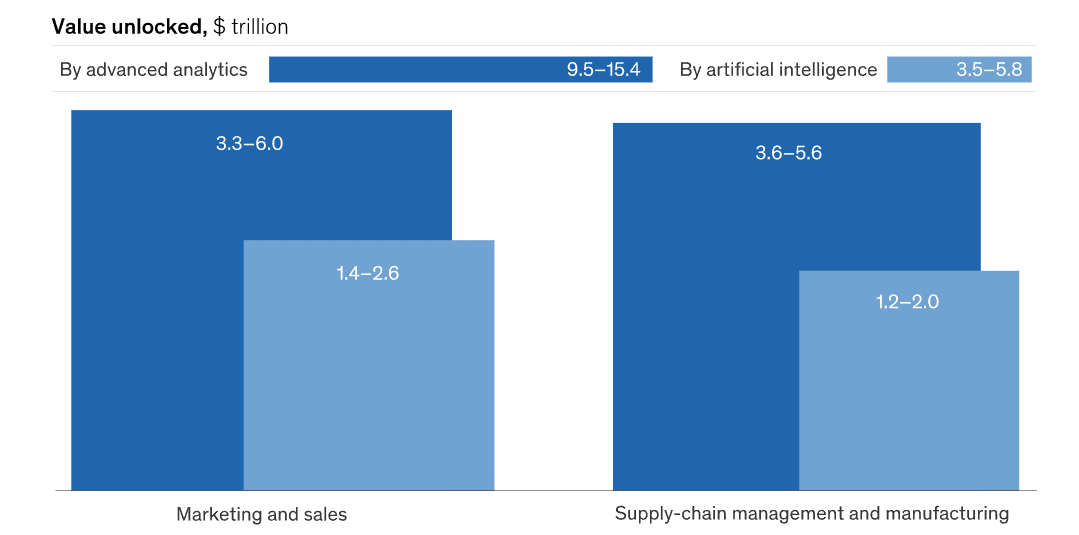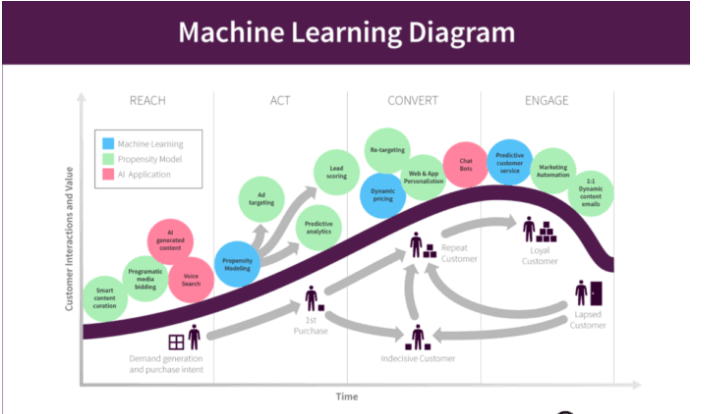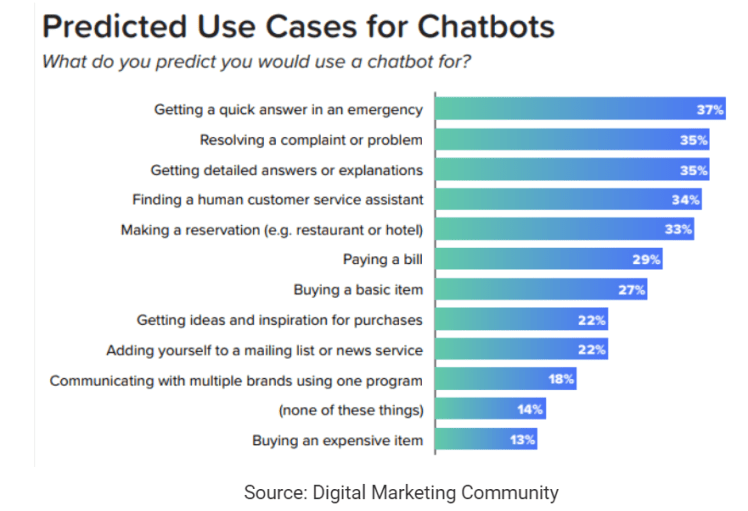Organizations across industries are looking at Artificial Intelligence (AI) to figure out the best ways to use it for their business. AI is after all an umbrella term; a suite of technologies. It will require significant investments in talent, tech upgrades and process overhaul to embed it across the business. However, one area where it is poised to make a difference is marketing. In 2019, McKinsey explored 400 actual AI cases in 19 industries and 9 business functions. It found that marketing and sales alone constitute two-thirds of all AI-based opportunities. AI could create $1.4 trillion to $2.6 trillion of value in these areas.
Image Source: https://www.mckinsey.com/business-functions/mckinsey-analytics/our-insights/most-of-ais-business-uses-will-be-in-two-areas
Generating leads through personalized content, measuring marketing ROI and securing sufficient budget for marketing campaigns are some challenges that marketers continue to face today. In recent years, businesses that have adopted AI in their marketing tactics have seen tangible benefits of using the tech to solve real-life problems. Let’s explore some of the use cases.
AI Has Revolutionized Marketing Strategies
The complexity of online interactions between consumers and businesses creates huge volumes of data. Marketing experts realize that if this data is sorted, managed and analyzed quickly and effectively, they can gain critical insights into customer demand, behavior patterns and preferences. This is where AI comes in.
By equipping companies with vital customer information, AI is helping organizations attract, nurture and convert prospects. It is enhancing the entire customer journey.
Image Source: https://www.smartinsights.com/tag/artificial-intelligence-ai-for-marketing/
Creating Personalized Website Experiences and Driving Conversion Rates
The first step of a customer’s journey is when they have purchase intent and research for products on online platforms. AI can help in enhanced visitor experiences on websites through intelligent personalization. Through a series of data points about a single user, such as location, demographics, website interactions and more, AI can showcase the best-fit offers and content. There are many ways in which this is being used.
Personalized Content Curation and Generation
AI has the power to curate and generate content as well as help marketers carve out an end-to-end content strategy. It is already doing so on a basic level. For instance, Chase Bank’s deal with Persado, a platform that uses machine learning in copywriting. At a basic level, AI can also suggest viable topics for writers and prepare first drafts, based on the provided parameters.
Chatbots
Chatbots are the most commonly used marketing automation tools on websites, helping brands engage with prospective customers across all devices. In 2018, an MIT technology review found that a large number of customer-centric businesses had already deployed chatbots in their customer experience management processes. Over 80% found improvements in customer satisfaction, contact center performance and service delivery.
Image Source: https://www.digitalmarketingcommunity.com/indicators/predicted-chat-bots-usage-cases-2018/
Predictive Analysis for Personalized Recommendations
Data scientists at Starbucks understand customers’ coffee drinking habits, thanks to the Starbucks Loyalty Card. The brand has been doing this to collect and analyze data since 2016. The brand uses predictive analysis to process this data (purchase history), and send personalized recommendations, offers and insights into local events. It also uses location data to know when customers are approaching their stores.
Intelligent Ad Spending
Marketing technologies like programmatic advertising use AI and machine learning to plan ad space in real-time, based on the preferences of the target market. Personalized ads can then be sent across all digital touch points that consumers interact with, like social media, videos, OTT platforms and more. The effectiveness of this strategy can be seen in the expectation that programmatic ad spend will grow to $20 billion by the end of 2021.
Personalizing Email Creation
Email marketing is especially tricky for B2B interactions. Marketers in this segment find it difficult to build customer loyalty. This is because products and services in B2B marketing are expensive and complex. Content creation in these emails becomes vital, to project expertise and thought leadership.
AI can help marketing teams analyze historical emails to not only determine the best time for sending emails but increase the efficacy of the content in them too. Apart from previous email interactions, AI captures many other points to create emails for target readers, such as:
- Website interactions
- Time spent on a page
- Blog articles read
- Interest of other visitors of the same profile.
AI is not only being used by organizations, consumers worldwide are also becoming more receptive of it. In 2019, a survey by Salesforce revealed that 62% of consumers are willing to use AI to enhance their experience, an increase from 59% in 2018. However, it is also important for businesses to let customers know exactly how they are using AI within the business. Communication and transparency are essential. How to do that? Well, that’s a topic for another article.



